ProPublica Data Institute 2018
An intensive workshop from The Ida B. Wells Society for Investigative Reporting and ProPublica on how to use data, design and code for journalism. From October 1 to 12 in New York City.
Our Materials
Here are all of the materials we used to teach the 2018 ProPublica Data Institute: slides, exercises, links, and homework. This is not an online course and doesn’t have all the context or instruction to be a standalone class. Sign up here to be notified of any updates to these materials, as well as any announcements about future workshops.
Want to use our slides? Our teaching materials fall under the same Creative Commons license we use across our site. Get more details here.
Meet the Class of 2018
We're thrilled to announce the 12 outstanding journalists who will be joining us for the Data Institute.
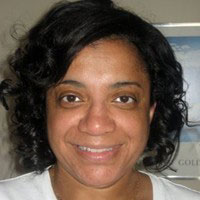
Denise Smith Amos (@damosreporter) is an education reporter at The Florida Times-Union in Jacksonville. Previously, she reported, wrote, opined and edited for newspapers in Cincinnati, St. Louis, Tampa/St. Petersburg, Detroit and Orlando. Denise is a Northwestern graduate.

Ricardo Cano (@Ricardo_Cano1) is a K-12 education reporter for CALmatters, a Sacramento-based journalism nonprofit focused on covering the California State Capitol. Previously, he covered education for The Arizona Republic and azcentral.com. Ricardo joined The Republic in 2015 after graduating from Fresno State with a bachelor’s degree in journalism.

Ximena Conde (@radioXimena) is Wisconsin Public Radio’s Second Century News Fellow. Based out of Milwaukee, she works as a general assignment reporter covering the southeastern Wisconsin. She got her start in news as Rhode Island Public Radio’s Morning Edition producer. She grew up in Queens and graduated from Rutgers University.
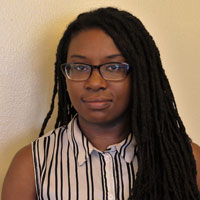
Aurora Ellis (@auroraborellis) joined the Huffington Post's New York office in 2017 after working and editing abroad for nearly five years. Previously, she was a news editor at a startup in Ecuador, where she coached a team of writers from across the world to report on social movements and Latin America. During the Arab Spring uprising, she interned as a reporter and worked as a copy editor for English-language newspapers in Egypt. Aurora graduated from Howard University and she speaks Egyptian Arabic.
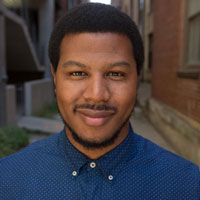
Kyeland Jackson (@KyelandJ) is an associate producer for WFPL News in Louisville, Kentucky. Originally from New Albany, Indiana, Kyeland grew up in Elizabethtown, Kentucky. He holds a bachelor's and master's degree in communication from the University of Louisville, where he wrote for the student newspaper, The Louisville Cardinal. He's covered a wide range of topics including politics, environment, crime and culture.

J.p. Lawrence (@jplawrence3) is a reporter in Afghanistan for Stars and Stripes. Previously, he worked at the San Antonio Express-News and Albany Times Union, and interned at The New York Times, the Associated Press bureau in East Africa and ABC News. He deployed in 2009 to Basra, Iraq, with the 34th Infantry Division. He was born in the Philippines and arrived in Minnesota with his mom when he was 3 years old.

Natalie Martinez (@natijomartinez) covers far-right extremism for Media Matters for America. Her work focuses on how disinformation and hate speech spread on social media and are monetized by tech platforms. She previously interned for Pew Research Center, St. Louis Public Radio, KLRU Austin and the Smithsonian Arctic Studies Center. Natalie has a bachelor’s degree in American culture studies from Washington University in St. Louis.
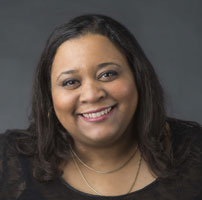
Valeya Miles (@valeya) is the site operations and social media manager for NOLA.com and The Times-Picayune, where she oversees the day-to-day digital operations and social content production team. Previously, Valeya managed online community engagement for mobile apps and in her move to journalism, Valeya was interested in learning how data, design and code can enhance storytelling and help a community make informed decisions.
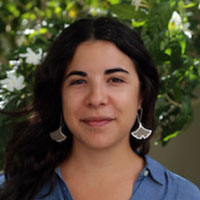
Laura Moscoso (@LauraC_Moscoso) is a journalist at the Center for Investigative Journalism based in San Juan, Puerto Rico. She has worked at Prensa Comunitaria, El Nuevo Día and WIPR, and she has collaborated on independent editorial projects. She also teaches data journalism and visualization workshops for journalists and students. Laura studied humanities at the University of Puerto Rico, Río Piedras Campus, and has a postgraduate degree in journalism, data and visualization from the King Juan Carlos University in Madrid.
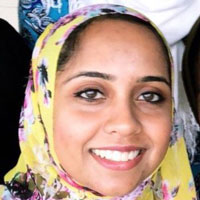
Asraa Mustufa (@AsraaReports) is a digital editor at The Chicago Reporter, a nonprofit investigative news organization that focuses on race, poverty and income inequality. A Chicago transplant by way of New Jersey, she has a background in reporting and she has studied journalism, political science and South Asian studies at Rutgers University.
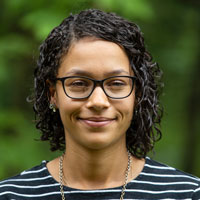
Kayleigh Skinner (@KayAnneSkinner) covers politics, education, state government and how they intersect for Mississippi Today, a nonprofit digital news organization. Previously, she reported at The Hechinger Report, Chalkbeat Tennessee and The Commercial Appeal in Memphis, Tennessee. She graduated from the University of Mississippi in 2014. When she's not reporting, Kayleigh enjoys training for marathons and spoiling her Louisiana mutt Gumbo.
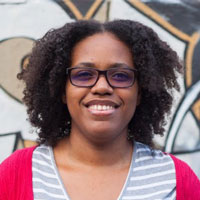
Samantha Smylie (@sammie_smylie) is an aspiring journalist in Chicago. Currently, she is interning for AirGo radio, working on the IlliNoise podcast and writing for South Side Weekly. Previously, she was a reporting fellow at City Bureau. Born and raised on Chicago's South Side, she is very passionate about telling stories that show the humanity of people who live on Chicago's South and West sides. She is also passionate about equity in education, housing and politics in Chicago. Samantha graduated from Oberlin College with a degree in history and minor in politics.
Code of Conduct
1. Purpose
ProPublica believes the Data Institute should be truly open for everyone. As such, we are committed to providing a friendly, safe and welcoming environment for all, regardless of gender, sexual orientation, disability, ethnicity or religion.
This code of conduct outlines our expectations for participant behavior as well as the consequences for unacceptable behavior.
We expect all of our instructors and students to help us create a safe and positive workshop for everyone.
2. Expected Behavior
Be considerate, respectful, and collaborative.
Refrain from demeaning, discriminatory or harassing behavior and speech.
Be mindful of your surroundings and of your fellow participants. Alert the Data Institute organizers if you notice a dangerous situation or someone in distress.
3. Unacceptable Behavior
Unacceptable behaviors include: intimidating, harassing, abusive, discriminatory, derogatory or demeaning conduct by anyone participating in the Data Institute.
Harassment includes: offensive verbal comments related to gender, sexual orientation, race, religion, disability; inappropriate use of nudity and/or sexual images in public spaces (including presentation slides); deliberate intimidation, stalking or following; harassing photography or recording; sustained disruption of talks or other events; inappropriate physical contact, and unwelcome sexual attention.
4. Consequences of Unacceptable Behavior
Unacceptable behavior will not be tolerated whether by instructors, students or ProPublica staff.
Anyone asked to stop unacceptable behavior is expected to comply immediately.
If someone engages in unacceptable behavior, the Data Institute organizers may take any action we deem appropriate, up to and including discontinuation of any stipends and expulsion from the Institute.
5. What to Do If You Witness or Are Subject to Unacceptable Behavior
If you are subject to unacceptable behavior, notice that someone else is being subject to unacceptable behavior, or have any other concerns, please notify a Data Institute organizer as soon as possible.
The Data Institute organizers will be available to help participants contact building security or local law enforcement, to provide escorts, or to otherwise assist those experiencing unacceptable behavior to feel safe for the duration of the Institute.
Special thanks to the Portland Tech Workshops for creating their Code of Conduct and licensing it under Creative Commons Attribution-ShareAlike.
